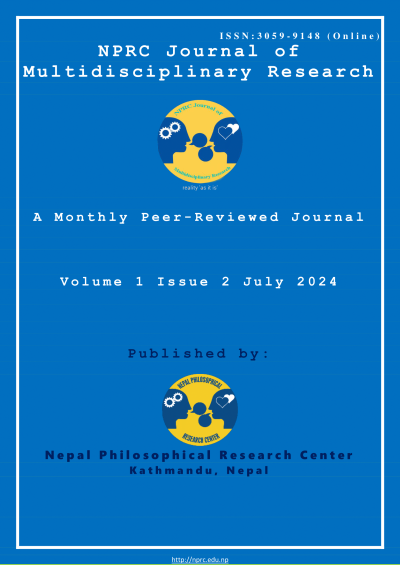Gender Differences in Usage of Pathao’s Two-Wheeler Services
DOI:
https://doi.org/10.3126/nprcjmr.v1i2.69384Keywords:
customer satisfaction, gender differences, Pathao services, two-wheeler experienceAbstract
The study tests the significant difference in usage patterns of Pathao Services between two different groups: male and female. In this context, the Independent Samples t-Test has been used to test equality in the mean usage of Pathao Services for both groups with and without the assumption of equal and unequal variances. We tested the sample of 397 participants, and the variance between these groups was found to be unequal by the Levene's Test showing the significant difference. The results reveal a statistically significant mean difference in the use of Pathao Services between the two groups. Precisely, the average of difference for 0.199, at 95% confidence interval, falls within a range of 0.087 to 0.310 when variances are considered to be equal and within a range of 0.073 to 0.325 when variances are taken to be unequal. As a matter of fact, the p-values for both tests were below the conventional alpha level of 0.05, meaning the differences observed are significant. The results derived from unequal variances tests were considered more reliable because of the significant F-value obtained from Levene's Test.
These results therefore indicate that one group is using Pathao Services more than the other. The significant differences of usage would require further examination of demographic, socio-economic, or even behavioral reasons responsible for these differences and might be useful in service provision and intervention. This thus calls for more research to find the root causes of such and perhaps inform strategies to help improve service engagement across diverse user groups.
Downloads
Downloads
Published
How to Cite
Issue
Section
License
Copyright (c) 2024 The Author(s)

This work is licensed under a Creative Commons Attribution-NonCommercial 4.0 International License.
This license enables reusers to distribute, remix, adapt, and build upon the material in any medium or format for noncommercial purposes only, and only so long as attribution is given to the creator.





